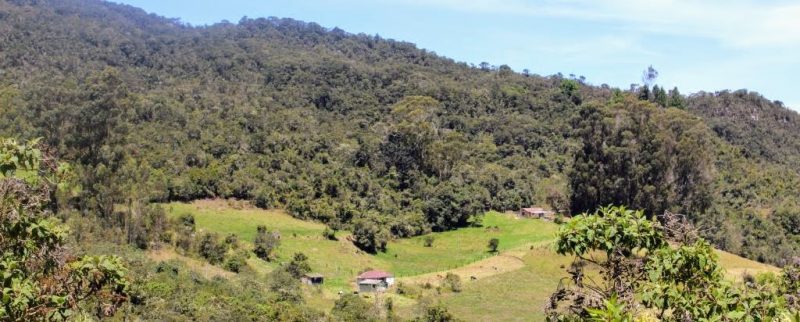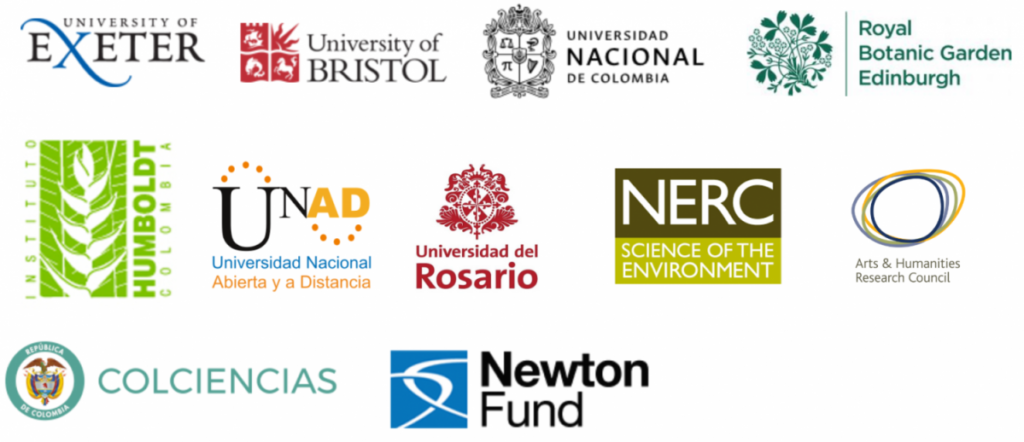
BioResilience examines the long-term resilience of Colombian forest ecosystems to environmental and climatic changes and aims to improve understanding of the future implications of forest degradation for Colombian society. The project focusses on forests spanning gradients of forest environment and degradation to allow evaluation of biodiversity and measurement of processes such as current and historical effects of fire, and carbon storage and changing climate. These data will be integrated with socio-cultural research, focusing on existing cultures of biodiversity conservation. This understanding is essential if the scientific evidence is to be integrated into long-term management plans and policy, as forest degradation in Colombia is strongly associated with changes to the fabric of social life, including the effects of sustained conflict.
BioResilience integrates work across three components: palaeoecology, forest ecology, and socio-environmental human geography. The project is a collaboration among the University of Exeter, Univeristy of Bristol, and Royal Botanic Garden Edinburgh in the UK, and Universidad Nacional de Colombia, Universidad Nacional Abierta y a Distancia UNAD de Colombia, and Instituto de Investigacion de Recursos Biológicos Alexander von Humboldt (IAvH) in Colombia.
BioResilience is one of five UK projects supported by the Natural Environment Research Council (NERC) and the Arts and Humanities Research Council (AHRC) under the Newton-Caldas Colombia-Bio programme (NE/R017980/1). In Boyaca and Cundinamarca, 24 local projects are funded under the same programme by the Colombian Department of Science, Technology and Innovation (Colciencias).
